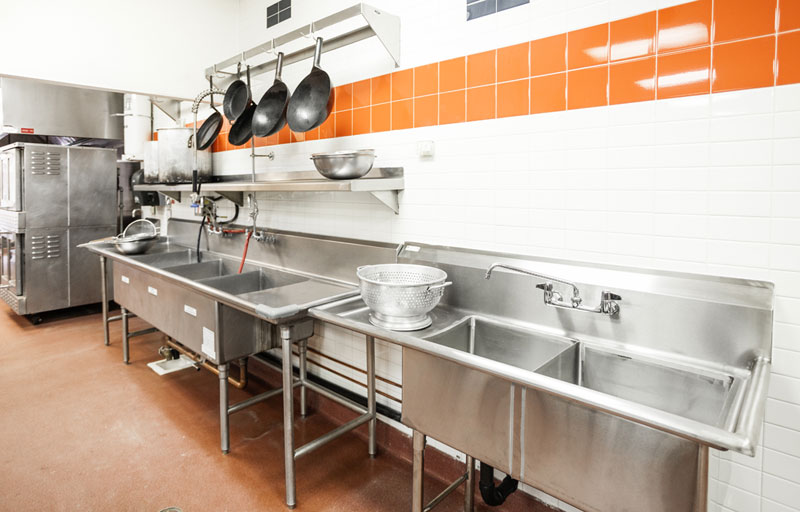The idea of a virtual restaurant powered by a ghost kitchen has been a trendy topic in the food on demand space, but the first company built around the concept is now operating out of Pasadena, California.
Kitchen United’s soft opening, friends and family nights and a few other tests are out of the way, and now the 15 concepts all under one roof are ready to start delivering.
The company also has been building out its executive team: Meredith Sandland recently joined on as chief operating officer. She previously served as Taco Bell’s chief development officer, and will now oversee Kitchen United’s strategy and rollout plan. Her already stacked team includes Atul Sood, a former McDonald’s executive who now is chief business officer of Kitchen United, and Massimo Noja De Marco, a celebrated restaurateur serving as chief culinary officer. The company is helmed by Jim Collins, founder and operator of Town Kitchen and Grill, a well-regarded new restaurant in Los Angeles.
It was initially spun out of the Cali Group, a forward-thinking collection of companies behind Cali Burger and more recently Flippy, the burger-flipping robot.
“Kitchen United is a company that started out dreaming big dreams to do big things. We knew that the demand for what we do exists here in Pasadena, but more importantly we know the demand existed across the country,” Collins said, adding there are two main use cases for the company.
For national chain with lots of units, off-premise dining/delivery gets it out of your operation to “help you get much closer to your customers than you could do in your traditional build out,” said Collins. “If you’re an independent taco shop, it might be more about testing the waters in a different market or expanding beyond the first location or expanding your delivery.
Collins has an aggressive goal of 15 locations built or underway by the end of 2019. At the first location, six of the seven day-one restaurants are established companies including the lauded Canter’s Deli that will expand its delivery into the Pasadena market. Also in the mix is Neal Fraser’s Fritzi Coop; Mama Musubi, Northern California better burger chain; Barney’s Gourmet Burgers; and vegan startup The Pizza Plant.
One location, a taco shop, is a startup location. The shared kitchen space, much like the share office spaces so popular today, is an ideal setup to get started without as much risk.
“It’s a pretty novel approach, if someone wants to be a restaurant, they can come in provide a couple cooks set up a website hopefully make sure their food is good and go,” said Chief Business Officer Atul Sood. “They don’t need to raise $1 million or wait nine months to wait for all the permitting to come through. In a Kitchen United facility, it takes less than a month.”
The location was built from the ground up around delivery, catering to drivers with easy parking (22 spots) and a centralized food collection and waiting area. That allows drivers to be in and out in about three minutes. That means no delivery drivers in line at the traditional locations and a better experience for delivery customers (win-win).
Beyond a kitchen, however, there is a lot to the shared spaces.
“We have designed a unique solution, providing a combination of technology, equipment, marketing assistance and workflow solutions specifically optimized to ensure partner success,” said Collins. “Not just the commercial kitchen space they need, but the resources and support to bring their vision to fruition.”
Sood said marketing is one of the big areas where the company helps.
“We don’t just market it online, Kitchen United takes a very active role in helping our partners market,” said Sood. “One of the things we work with them on (is) their plans for marketing and how we can augment those plans using both traditional and online media to reach a highly defined local community.”
That means door hangers, direct mail, pop-up events and real-world events that a delivery-only restaurant needs to do to get visibility “to drive excitement in the community and drive those orders,” said Sood.
At the core though, the basic operations are keyed in for efficient delivery. The kitchen pumps out the food from a centralized POS, and when an order is ready, a dedicated runner and expediter goes to the kitchen and picks up the order. Then that Kitchen United employee checks the order and hands it off to the delivery driver. Sharing that delivery overhead is the key part of the concept and means that each virtual restaurant really does need a very small kitchen staff.


